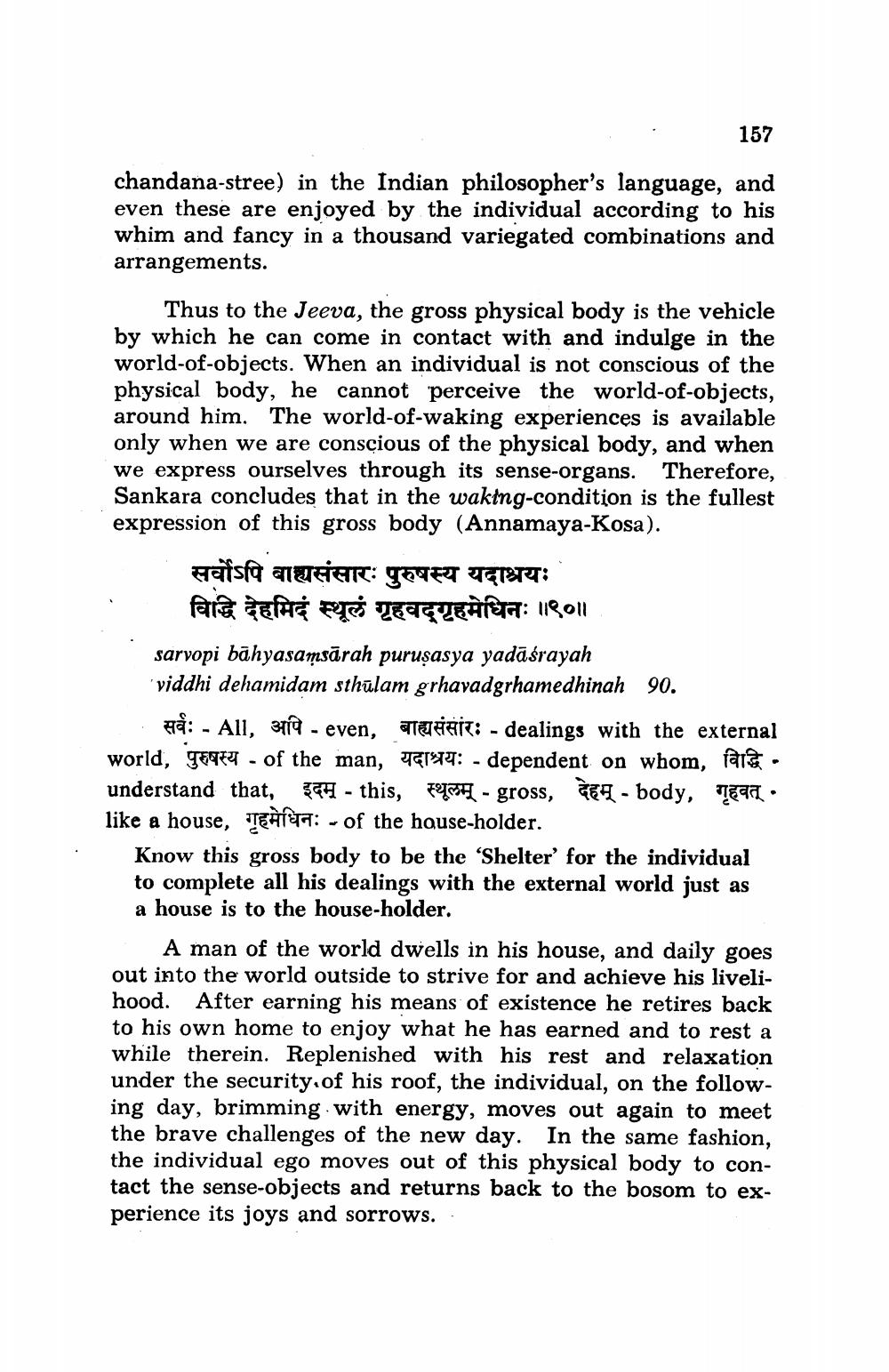________________
chandana-stree) in the Indian philosopher's language, and even these are enjoyed by the individual according to his whim and fancy in a thousand variegated combinations and arrangements.
157
Thus to the Jeeva, the gross physical body is the vehicle by which he can come in contact with and indulge in the world-of-objects. When an individual is not conscious of the physical body, he cannot perceive the world-of-objects, around him. The world-of-waking experiences is available only when we are conscious of the physical body, and when we express ourselves through its sense-organs. Therefore, Sankara concludes that in the waking-condition is the fullest expression of this gross body (Annamaya-Kosa).
सर्वोऽपि बाह्यसंसारः पुरुषस्य यदाश्रयः विद्धि देहमिदं स्थूलं गृहवद्गृहमेधिनः ॥९०॥
sarvopi bahyasamsarah puruṣasya yadāśrayah viddhi dehamidam sthulam grhavadgrhamedhinah 90.
सर्वः - All, अपि - even बाह्यसंसार:- dealings with the external world, पुरुषस्य - of the man, यदाश्रयः - dependent on whom, विद्धि - understand that, इदम् - this, स्थूलम् - gross, देहम् body, गृहवत् • like a house, of the house-holder.
-
Know this gross body to be the 'Shelter' for the individual to complete all his dealings with the external world just as a house is to the house-holder.
A man of the world dwells in his house, and daily goes out into the world outside to strive for and achieve his livelihood. After earning his means of existence he retires back to his own home to enjoy what he has earned and to rest a while therein. Replenished with his rest and relaxation under the security of his roof, the individual, on the following day, brimming with energy, moves out again to meet the brave challenges of the new day. In the same fashion, the individual ego moves out of this physical body to contact the sense-objects and returns back to the bosom to experience its joys and sorrows.




